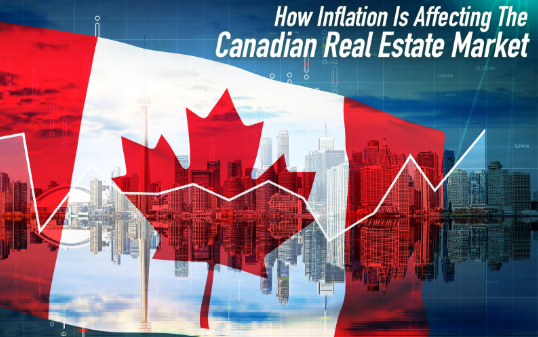Introduction: A Nation Under Housing Pressure
The Canada housing market continues to dominate headlines in 2025. With home prices remaining historically high and affordability slipping out of reach for many, Canadians are facing a critical housing challenge. This article offers a comprehensive look at the latest housing prices, rental trends, interest rates, policy changes, and expert predictions — giving you everything you need to know to navigate today’s complex market.
1. Current Home Prices Across Canada
Despite higher interest rates in early 2025, housing prices have shown surprising resilience.
Average Home Prices (April 2025):
| City | Avg. Home Price (CAD) |
|---|---|
| Vancouver | $1.4 million |
| Toronto | $1.2 million |
| Calgary | $670,000 |
| Montreal | $620,000 |
| Halifax | $510,000 |
Key Trend:
Smaller cities and suburban areas are experiencing faster growth than major urban centers as Canadians seek affordability outside core metros.
2. Mortgage Rates in 2025
The Bank of Canada’s policy rate remains at 5.00%, but economists expect a possible rate cut in the summer due to cooling inflation.
Current Mortgage Rates:
- 5-year fixed: ~5.2%
- 5-year variable: ~5.0%
- HELOCs: ~7.0%
Effect on Buyers:
High mortgage rates have reduced purchasing power, causing some buyers to delay entering the market or turn to smaller properties.
3. Who Can Still Afford to Buy?
Affordability remains the biggest challenge in the Canada housing market. According to RBC, a household now needs a minimum income of $180,000/year to afford a detached home in Toronto or Vancouver with 20% down.
Most Affected Groups:
- First-time homebuyers
- New immigrants
- Young professionals
Alternatives:
Co-buying, moving to secondary cities, or renting long-term are increasingly popular options for those priced out.
4. Canada’s Rental Market in Crisis
Rents have skyrocketed across the country. The average one-bedroom rent in major cities has risen by more than 10% compared to last year.
Average Rents (1-Bedroom – April 2025):
- Vancouver: $2,850/month
- Toronto: $2,550/month
- Ottawa: $2,100/month
- Edmonton: $1,500/month
Contributing Factors:
- Population growth (immigration + students)
- Limited rental supply
- Rising property taxes passed onto tenants
Outcome:
Families are doubling up, moving to smaller units, or leaving city centers altogether.
5. Government Housing Policies in 2025
To address the crisis, the federal government and provinces have rolled out several new housing policies:
Key Measures:
- National Housing Strategy 2.0: $10B over 3 years for affordable builds
- Tax breaks for builders of rental housing
- Foreign buyer ban extended through 2026
- Property vacancy taxes in B.C., Ontario, and Quebec
Impact So Far:
While promising, these policies will take years to affect supply. Many critics argue the pace of construction still lags behind demand.
6. Housing Supply & Construction Trends
Canada needs over 3.5 million new homes by 2030 to restore affordability, according to CMHC.
Challenges Slowing Construction:
- Labor shortages in trades
- Rising material costs
- Municipal delays in permitting
New Trends:
- Pre-fab modular housing
- High-density condo developments near transit lines
- Zoning reforms in cities like Vancouver and Edmonton
Goal:
To build faster, cheaper, and more sustainable housing for growing urban populations.
7. Is the Housing Market Going to Crash?
Many Canadians are wondering: Is a housing market crash coming?
Expert Opinions:
- Most economists predict a soft landing, not a crash.
- Prices may stagnate or dip slightly in 2025, especially in overvalued markets.
- Any steep drop is unlikely unless there’s a global recession or major policy error.
Bank of Canada Outlook:
Expect stable prices in 2025 with gradual improvement in affordability by 2026–2027.
8. Immigration and Population Growth
Canada welcomed over 500,000 new permanent residents in 2024, with similar numbers expected in 2025. International students and temporary foreign workers add to the demand.
Where Most Immigrants Settle:
- Toronto
- Vancouver
- Calgary
- Montreal
Result:
Population growth is outpacing housing construction, putting additional strain on the already tight housing supply.
9. Investment in Real Estate: Still a Good Idea?
Real estate remains a preferred investment option for many Canadians despite high interest rates.
Trends in 2025:
- Shift toward rental income properties (duplexes, basement apartments)
- Investors buying in smaller towns where prices are still rising
- Increased interest in commercial-to-residential conversions
Investor Tip:
Look for cities with population growth, stable job markets, and supportive municipal housing policies.
10. What Canadians Are Saying
Recent surveys show that:
- 72% believe housing is unaffordable in their city.
- 61% say government efforts are not enough.
- 39% have considered moving provinces to buy a home.
Trending Hashtags:
- #HousingCrisisCanada
- #AffordableHousingNow
- #MoveOutOfToronto
Conclusion: Navigating the Canada Housing Market
The Canada housing market in 2025 remains a high-stakes, high-pressure environment. Prices are still elevated, and while the pace of growth has slowed, affordability remains out of reach for many.
If you’re a buyer – watch for upcoming interest rate changes.
If you’re a renter – consider government assistance programs or co-living solutions.
If you’re an investor – focus on long-term value and high-demand regions.
Stay tuned to this blog for weekly updates, expert insights, and smart strategies to navigate the ever-evolving housing market in Canada.
